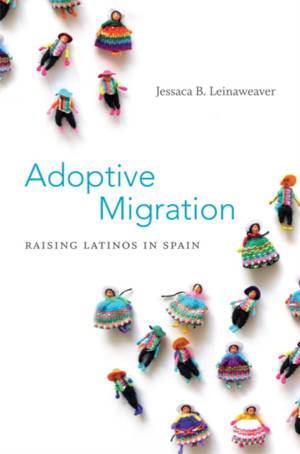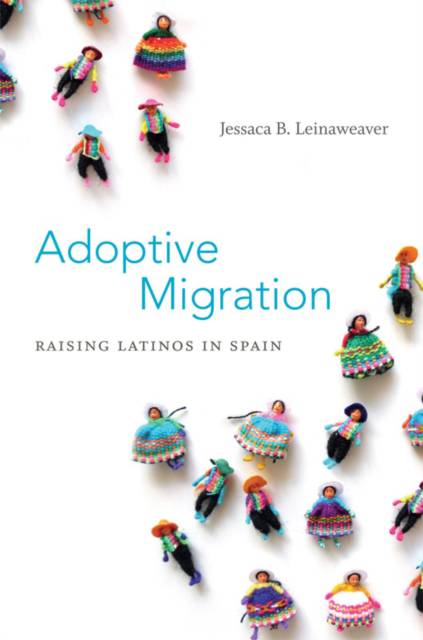
- Afhalen na 1 uur in een winkel met voorraad
- Gratis thuislevering in België vanaf € 30
- Ruim aanbod met 7 miljoen producten
- Afhalen na 1 uur in een winkel met voorraad
- Gratis thuislevering in België vanaf € 30
- Ruim aanbod met 7 miljoen producten
Zoeken
€ 47,45
+ 94 punten
Omschrijving
Spain has one of the highest per capita international adoption rates in the world. Internationally adopted kids are coming from many of the same countries as do the many immigrants who are radically transforming Spain's demographics. Based on interviews with adoptive families, migrant families, and adoption professionals, Jessaca B. Leinaweaver examines the experiences of Latin American children adopted into a rapidly multiculturalizing society. She focuses on Peruvian adoptees and immigrants in Madrid, but her conclusions apply more broadly, to any pairing of adoptees and migrants from the same country. Leinaweaver finds that international adoption, particularly in a context of high rates of transnational migration, is best understood as both a privileged and unusual form of migration, and a crucial and contested method of family formation. Adoptive Migration is a fascinating study of the implications for adopted children of growing up in a country that discriminates against their fellow immigrants.
Specificaties
Betrokkenen
- Auteur(s):
- Uitgeverij:
Inhoud
- Aantal bladzijden:
- 216
- Taal:
- Engels
Eigenschappen
- Productcode (EAN):
- 9780822355076
- Verschijningsdatum:
- 6/09/2013
- Uitvoering:
- Paperback
- Formaat:
- Trade paperback (VS)
- Afmetingen:
- 157 mm x 234 mm
- Gewicht:
- 317 g

Alleen bij Standaard Boekhandel
+ 94 punten op je klantenkaart van Standaard Boekhandel
Beoordelingen
We publiceren alleen reviews die voldoen aan de voorwaarden voor reviews. Bekijk onze voorwaarden voor reviews.








